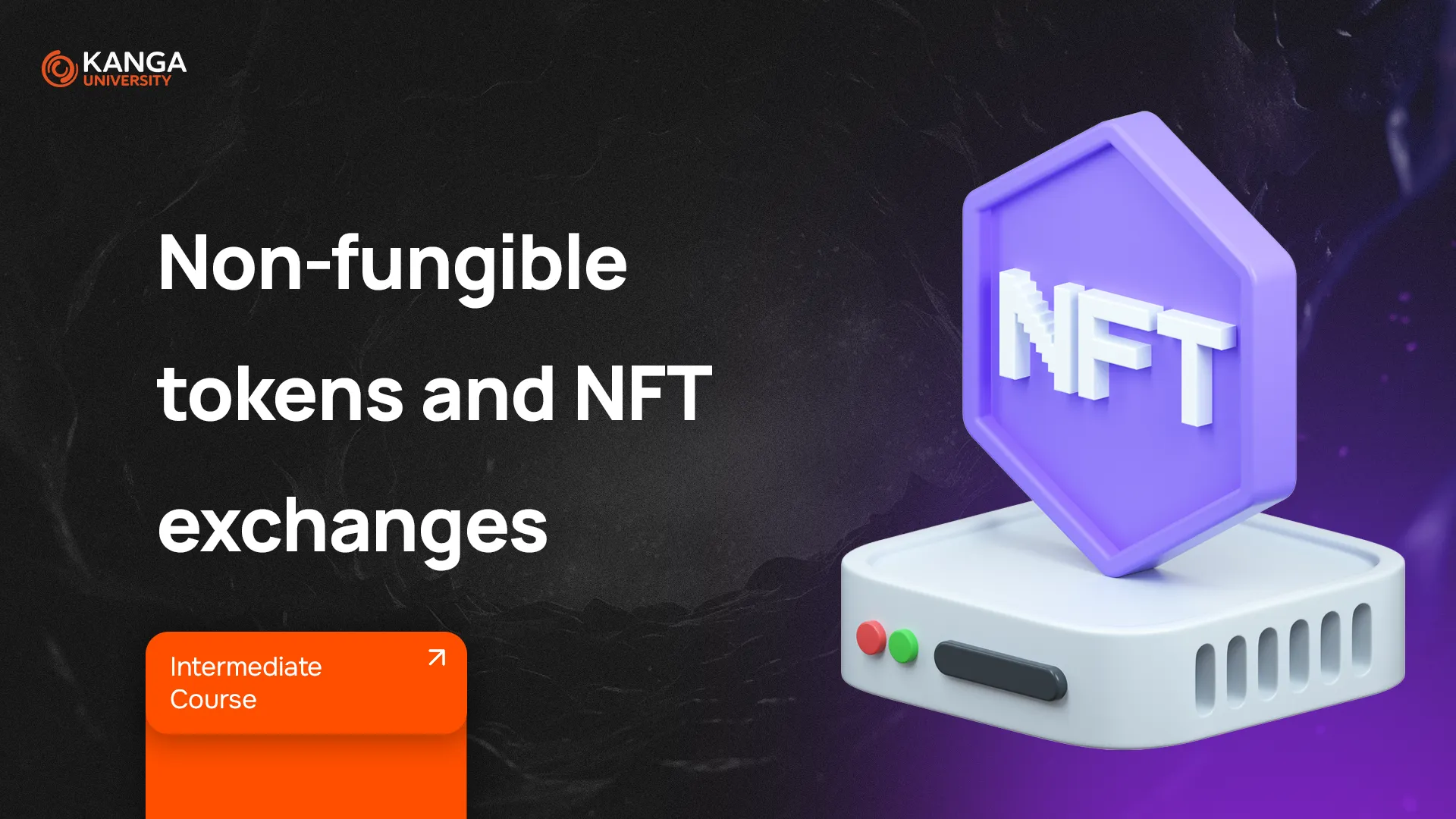
The NFT and Metaverse market continues to gain popularity, attracting major brands, investors, and creators from various industries. Digital tokens and collectible items generate billions in revenue, making NFTs one of the most discussed topics in blockchain technology.
Since the NFT boom in 2021, numerous platforms have emerged, allowing users to create, buy, and sell these unique assets. While Ethereum was initially the dominant blockchain for NFTs, today they operate on multiple networks, increasing accessibility and reducing transaction costs.
In this lesson, we will explore the largest and most important NFT marketplaces, their role in the industry, and key factors to consider when choosing a platform for NFT trading.
What Are NFTs? A Brief Recap
Before diving into marketplaces, let’s quickly review what NFTs are and why they have gained such popularity.
NFTs, or non-fungible tokens, are unique digital assets stored on a blockchain that confirm ownership of a specific item. These can include:
- Digital artwork
- Music and audio files
- Virtual real estate
- In-game items
- Collectible cards and memorabilia
What makes NFTs unique is their authenticity and non-fungibility. Unlike cryptocurrencies like Bitcoin or Ethereum, which are interchangeable and identical, each NFT is distinct, making it valuable for collectors and investors.
The NFT market experienced rapid growth in 2021, attracting global brands, artists, and celebrities. Since then, the industry has continued to evolve, with new platforms emerging to meet increasing user demand.
Top NFT Marketplaces in 2024
Initially, most NFT platforms operated exclusively on the Ethereum blockchain. However, high transaction fees and network congestion led to the development of NFT marketplaces on alternative blockchains, such as Polygon, Solana, and Tezos, which offer lower costs and faster transactions.
Here are the top NFT marketplaces in 2024:
1. OpenSea – The Largest NFT Marketplace
- Supports Ethereum, Polygon, Solana, and Arbitrum
- Over 2 million users and 20 billion dollars in total transaction volume
- Offers a wide range of NFTs, from digital art to in-game assets
2. Rarible – A Community-Driven NFT Marketplace
- Operates on Ethereum, Flow, and Tezos
- Uses the RARI token, allowing users to participate in platform governance
- 1.6 million users, with continuous growth
3. SuperRare – Exclusive NFTs for Art Collectors
- Specializes in curated, high-quality digital art collections
- Introduced the RARE token, enabling community governance
- Known for high-value NFT sales and limited-edition releases
4. Axie Infinity – NFTs in Gaming
- One of the most successful play-to-earn gaming projects
- Allows players to buy, trade, and battle with NFT creatures called Axies
- Faced security challenges after the Ronin Bridge attack in 2022 but remains a leader in blockchain gaming
5. Decentraland – NFTs in the Metaverse
- A Metaverse platform where users can purchase virtual real estate as NFTs
- In 2021, a single virtual land plot sold for 2.4 million dollars
- Continues to attract brands and businesses investing in virtual experiences
6. Nifty Gateway – A Premium NFT Marketplace
- Specializes in limited-edition NFT drops from top artists and celebrities
- Introduced a carbon offset initiative to reduce the environmental impact of NFT minting
How to Choose the Right NFT Marketplace?
Not all NFT platforms operate in the same way. If you want to trade or invest in NFTs, consider the following key factors:
- Security – Does the platform provide protection against fraud and hacking attacks
- Transaction Fees – Ethereum-based platforms often have high fees, while alternatives like Solana or Polygon offer cheaper transactions
- User Experience – If you are new to NFTs, a platform with a simple and intuitive interface is the best choice
- Types of Available NFTs – Some platforms focus on art, while others specialize in gaming assets or virtual real estate
- Supported Blockchains – Ethereum is the most popular, but networks like Tezos, Solana, and Flow offer different functionalities and lower costs
Summary
NFT marketplaces are at the core of the digital collectibles revolution. Whether you are an artist, investor, or collector, understanding the differences between platforms will help you make better decisions.
As the NFT market continues to evolve, new platforms and technologies will emerge, offering more opportunities and innovations. Staying informed about industry trends and security measures is essential to navigating this fast-moving space.